Way back in April this year Henrik Palm released an album called Nerd Icon (via Svart Records). It’s very good – 80s-inflected melodic hard rock is as good a description as any, I guess, but it has a very individual personality and none of the pomposity or poser quality of that kind of music (no offence to actual 80s rock, which I love). In fact it’s one of my albums of the year (see short list below somewhere). But thinking about ‘albums of the year’ (yes, I probably whinge about this annually) especially in the context of Henrik Palm’s work makes me think of what a meaningless accolade it is. Not because there isn’t lots of good music produced every year, but just because people who love music don’t generally accumulate favourite albums in a real time, chronological way. The point of recorded music is that it has been recorded and can be therefore enjoyed outside of the time and place that it was made.
To labour the point, if music only moved forwards, with this year’s top 50 (or whatever) albums superseding last year’s and so on, ‘classic albums’ wouldn’t exist and once-obscure artists would remain obscure and people like Nick Drake (obvious example I know) would be only loved by the shockingly tiny handful of living people who bought his work at the time. But even before the internet that wasn’t the case and it still isn’t, so end of year lists end up being as peculiar a time capsule as the top 40 from years ago is. Yes, they are ranked by quality rather than popularity, but as looking back at these things demonstrates, they are no more reliable for that.
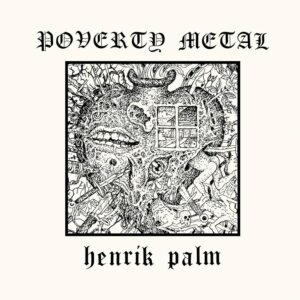
But the reason Henrik Palm illustrates this point for me is that in 2020 he released Poverty Metal, I heard it at the time and quite liked it but I don’t think I wrote about it anywhere, though it got a surprised mention in 2022 – and to my continued surprise I still play it fairly often. It’s an album as unassuming and quirky (I mean that is the right word but bleh) as its title – melodic, sometimes kind of 70s-ish, sometimes not, rarely very metal, often quite delicate and always thoughtful. It’s peculiar, but part of what makes it peculiar is how conventional it is – but at the same time, how unusual it is by the standards of those conventions. I guess it has become one of my favourite albums, which I don’t think anything on my actual 2020 ‘albums of the year’ lists did. And after the dust has settled on 2024, it may be that if any album from this year enters my personal pantheon, it could be one that hasn’t really registered with me yet or that I haven’t even heard.
Now that I’ve undermined it in advance, here’s my ‘albums of the year’ feature.
My favourite albums of this year are two which I (obviously) think are great, but for varying reasons I don’t know if they will stick around my personal playlist like Poverty Metal has – but they may.

The first is In Concert by Diamanda Galás (Intravenal Sound Operations). Live albums are interesting in that many people (including myself) can be slightly dismissive of them (“_____ has a new album coming out! Oh, it’s just a live album“), a strange reaction, because if you’re lucky enough to see your favourite artists live you never think “oh, it was just a live performance.” In the context of home listening, none of the ephemeral magic of a live show – the stuff that’s really about you – is present, but theoretically the most important part is. In comparison with Galás’ recent, brilliantly gruelling work (Broken Gargoyles was my album of the year in 2022) the album is simple, or at least unadorned; just her extraordinary voice and uniquely expressive piano. But that’s quite a ‘just’ – and she plays a set of songs that are urgent, deeply moving, haunting, wise, shockingly relevant and occasionally wickedly funny. What more do you want? It’s about as far removed from a stadium band delivering polished versions of their greatest hits as you can get and though it would no doubt be a fantastic souvenir and reminder if you were lucky enough to see the performance, it’s entirely transporting just as a record. Will it join the Masque of the Red Death trilogy, The Litanies of Satan, The Sporting Life and Broken Gargoyles as one of my favourite Diamanda Galás albums? Who knows? Some of her work takes time to really get to know in a way that In Concert doesn’t, and I feel like I’m still ‘working on’ (not the right phrase) some of her older work – what that means for this album I don’t know, but I do know that nothing this year has cut deeper.
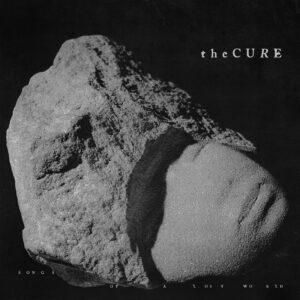
My second album of the year is Songs of a Lost World by The Cure (Fiction), which I reviewed here, which is just as visceral for me, but for completely different reasons. It is, as an amazing amount of people seem to agree, a superb album, moving and memorable and all of that; but I have been a fan of The Cure since I was seventeen and there hasn’t been any point where I stopped listening to them completely. That doesn’t necessarily mean I was predisposed to like it – their last couple of records didn’t do much for me, though they have their moments – but it is relevant to my personal response to it. Even though by any objective methods of analysis (there aren’t any) Songs of a Lost World is probably as good as anything the band has done, will it join Seventeen Seconds, Disintegration, Japanese Whispers and Pornography as one of my all-time favourite Cure albums? Or even Faith, The Top, Kiss Me, Kiss Me, Kiss Me, the Head on the Door and Boys Don’t Cry as my second-tier, almost-favourite Cure albums? Only time will tell, but in that time I will no longer be the me that was most receptive to their music and the band will have to compete with far more music (old, new, whatever) than they ever did when I obsessively listened to them. Then I had no way of getting their work except by buying it or making tapes from friends who owned it. I definitely think I love music just as much as I ever did, but I don’t obsessively listen to anything the way I did in my teens and early 20s. The older Cure records, even the ones I liked relatively less, like Wish and Kiss Me… are imprinted on my brain in a way that just doesn’t get a chance to happen now. But in a way I feel like Songs of a Lost World addresses and encapsulates all of those feelings, which is one of the reasons it’s so good.
Not sure if it’s coincidental or significant that both of my favourite albums of the year are by artists I’ve been listening to for decades, but it’s interesting either way. So anyway, a wee list of honourable mentions and we’re done with this for another year
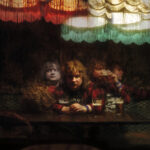 Henrik Palm – Nerd Icon (Svart Records) – sort of 80s-ish, sort of metal-ish, 100% individual
Henrik Palm – Nerd Icon (Svart Records) – sort of 80s-ish, sort of metal-ish, 100% individual
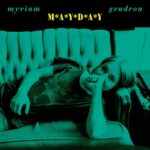 Myriam Gendron – Mayday (Feeding Tube) – I loved Not So Deep as a Well ten years ago (mentioned in passing here) and love this even more
Myriam Gendron – Mayday (Feeding Tube) – I loved Not So Deep as a Well ten years ago (mentioned in passing here) and love this even more
 Ihsahn – Ihsahn (Candlelight) – wrote about it here – for me it doesn’t top my favourite Das Seelenbrechen, but it’s as good as any of his others
Ihsahn – Ihsahn (Candlelight) – wrote about it here – for me it doesn’t top my favourite Das Seelenbrechen, but it’s as good as any of his others
 One of my top 3 or 4 albums of all time, John Cale’s Paris 1919 was reissued this year, his latest POPtical Illusion was good too
One of my top 3 or 4 albums of all time, John Cale’s Paris 1919 was reissued this year, his latest POPtical Illusion was good too
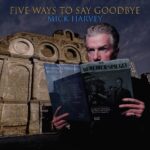 Mick Harvey – Five Ways to Say Goodbye (Mute) – lovely autumnal album by ex-Bad Seed and musical genius, more here
Mick Harvey – Five Ways to Say Goodbye (Mute) – lovely autumnal album by ex-Bad Seed and musical genius, more here

Nick Cave & the Bad Seeds – Wild God (PIAS recordings) – for me a good rather than amazing Nick Cave album, but he’s better than most people so still easily made the list, though I’m not sure I like it more than his old colleague’s work
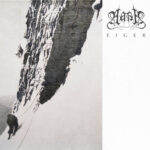 Aara – Eiger (Debemur Morti Productions) – Superior Swiss black metal, conceptual without being pompous and full of great tunes and atmosphere
Aara – Eiger (Debemur Morti Productions) – Superior Swiss black metal, conceptual without being pompous and full of great tunes and atmosphere
 Claire Rousay – Sentiment (Thrill Jockey) – bracingly sparse and desolate but lovely too
Claire Rousay – Sentiment (Thrill Jockey) – bracingly sparse and desolate but lovely too
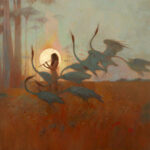 Alcest – Chants de L’Aurore (Nuclear Blast) – seems so long ago that I almost forgot about it, but this was (I thought) the best Alcest album for years, beautiful, wistful and generally lovely. I talked to Neige about it at the time, I should post that interview here at some point!
Alcest – Chants de L’Aurore (Nuclear Blast) – seems so long ago that I almost forgot about it, but this was (I thought) the best Alcest album for years, beautiful, wistful and generally lovely. I talked to Neige about it at the time, I should post that interview here at some point!
Onwards!


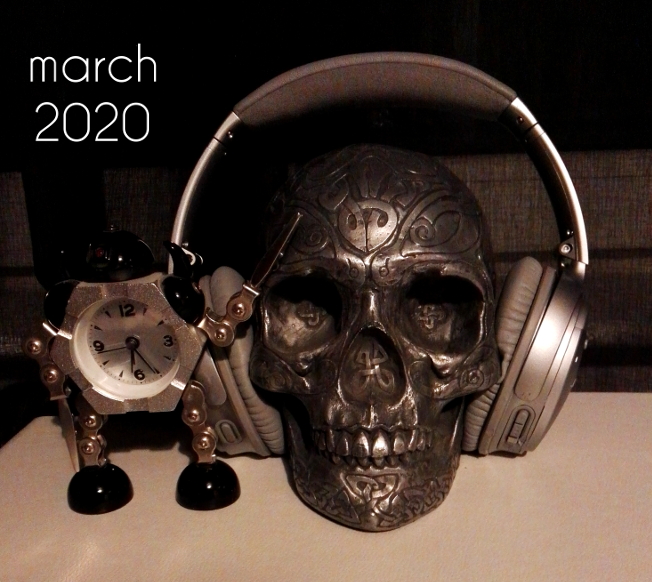
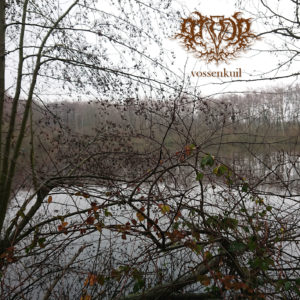
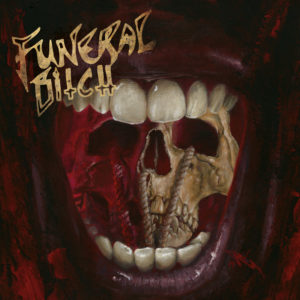 A foolish name, you might think; and yet there have been no less than three different bands called Funeral Bitch. This is the first and best of the three, the one formed by Paul Speckmann in 1986-8 between different incarnations of the much better known Master. Funeral Bitch were much in the same vein; extremely fast and rough (though still anthemic) death/thrash, with Speckmann’s hoarse bellowing a bit too prominent in the thin mix. That said, the demos are imbued with a real raw vitality that could arguably have been lost with the kind of production favoured by the big-name thrash bands of the era. It’s a real time capsule of the more extreme end of the 80s thrash scene and there’s a fair amount of intentional silliness too; a key but often forgotten feature of era. Interestingly, the guitarist is Alex Olvera, better known for his tenure as bassist with mid-level speed metal band Znöwhite around the same time. Only essential for Master fans, but generally fun, even if the live tracks are (appropriately) ‘rough as guts’ as they say down under.
A foolish name, you might think; and yet there have been no less than three different bands called Funeral Bitch. This is the first and best of the three, the one formed by Paul Speckmann in 1986-8 between different incarnations of the much better known Master. Funeral Bitch were much in the same vein; extremely fast and rough (though still anthemic) death/thrash, with Speckmann’s hoarse bellowing a bit too prominent in the thin mix. That said, the demos are imbued with a real raw vitality that could arguably have been lost with the kind of production favoured by the big-name thrash bands of the era. It’s a real time capsule of the more extreme end of the 80s thrash scene and there’s a fair amount of intentional silliness too; a key but often forgotten feature of era. Interestingly, the guitarist is Alex Olvera, better known for his tenure as bassist with mid-level speed metal band Znöwhite around the same time. Only essential for Master fans, but generally fun, even if the live tracks are (appropriately) ‘rough as guts’ as they say down under.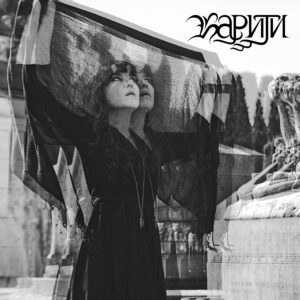 Kariti is a Russian-Italian singer of dark folk music and, after an extremely peculiar and archaic-sounding voices-only intro, Covered Mirrors becomes an album of moody semi-acoustic songs which are not especially folk-sounding, but are very pretty indeed. The guitar sound is crisp and almost tangible, and the vocals (mainly in English) are clear and mournful, as befits the album’s themes of ‘death and parting’. It’s a beautifully grave and austere record, with an intimate quality that (especially through headphones) brings the listener extremely close to the performance, while remaining emotionally remote and unreachable: a perfect album for a time of quarantine, if not one that will cheer anyone up.
Kariti is a Russian-Italian singer of dark folk music and, after an extremely peculiar and archaic-sounding voices-only intro, Covered Mirrors becomes an album of moody semi-acoustic songs which are not especially folk-sounding, but are very pretty indeed. The guitar sound is crisp and almost tangible, and the vocals (mainly in English) are clear and mournful, as befits the album’s themes of ‘death and parting’. It’s a beautifully grave and austere record, with an intimate quality that (especially through headphones) brings the listener extremely close to the performance, while remaining emotionally remote and unreachable: a perfect album for a time of quarantine, if not one that will cheer anyone up. Alternately really great and very silly indeed, the sci-fi theme/concept behind Space Goretex sometimes gets in the way of the music. At its best the marriage of the unusual (but mostly surprisingly low key) musical textures of
Alternately really great and very silly indeed, the sci-fi theme/concept behind Space Goretex sometimes gets in the way of the music. At its best the marriage of the unusual (but mostly surprisingly low key) musical textures of 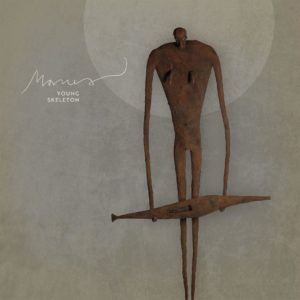 Always a surprise to find that non-mainstream musicians still release singles, but that’s what Manes are doing; and, like their last album, the superb Slow Motion Death Sequence it’s black metal in feeling only; musically the title track is a kind of eccentric and brooding widescreen gothic rock (I guess; it reminded me a bit of the Planet Caravan type early Black Sabbath ballads and musically but definitely not vocally a little bit of Fields of the Nephilim; there’s no electronic element on this one). It’s beautifully recorded, the title track warm and limpid but with an undertone of unease that builds throughout. The B side (is that still what it is for a digital release?) is Mouth of the Volcano, an atmospheric doomy semi-electronic chug built around a strangely familiar spoken word section that can’t place and featuring Asgeir Hatlan (last heard in Manes on 2014’s Be All, End All) and some spooky Diamanda Galas-ish vocals from Anna Murphy (ex-Eluveitie) and Ana Carolina Skaret. An unsettling but very listenable pair of songs and so a single worth releasing; and with beautiful artwork too.
Always a surprise to find that non-mainstream musicians still release singles, but that’s what Manes are doing; and, like their last album, the superb Slow Motion Death Sequence it’s black metal in feeling only; musically the title track is a kind of eccentric and brooding widescreen gothic rock (I guess; it reminded me a bit of the Planet Caravan type early Black Sabbath ballads and musically but definitely not vocally a little bit of Fields of the Nephilim; there’s no electronic element on this one). It’s beautifully recorded, the title track warm and limpid but with an undertone of unease that builds throughout. The B side (is that still what it is for a digital release?) is Mouth of the Volcano, an atmospheric doomy semi-electronic chug built around a strangely familiar spoken word section that can’t place and featuring Asgeir Hatlan (last heard in Manes on 2014’s Be All, End All) and some spooky Diamanda Galas-ish vocals from Anna Murphy (ex-Eluveitie) and Ana Carolina Skaret. An unsettling but very listenable pair of songs and so a single worth releasing; and with beautiful artwork too.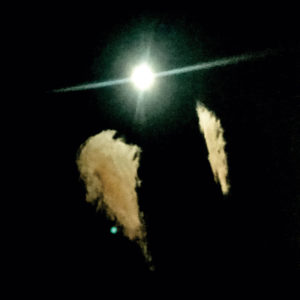 More solemn, downbeat but mostly very pretty music. I had never heard Midwife (the solo project of Madeline Johnston) before; on this album at least, it’s a bare, guitar-based sound with some ambient electronic elements, sort of shoegaze-y but not. The nearest comparison I can think of (not that anyone asked for one) is Codeine circa Frigid Stars. Forever was inspired by the unexpected loss of a friend and the music is as fragile and mournful as you’d expect. The sound is warm, clear and intimate-sounding – aside from the vocals, which are distanced by a strange spacey, reverb effect; perhaps for the best as the raw emotion is rendered slightly remote and universal, rather than immediate and personal. It’s clearly not an album for all moods: although the closing track S.W.I.M. speeds up to a Jesus and Mary Chain-esque plod, Forever is consistently slow and elegiac and nothing really lifts it out of its furrow of sadness: but beautiful for all that.
More solemn, downbeat but mostly very pretty music. I had never heard Midwife (the solo project of Madeline Johnston) before; on this album at least, it’s a bare, guitar-based sound with some ambient electronic elements, sort of shoegaze-y but not. The nearest comparison I can think of (not that anyone asked for one) is Codeine circa Frigid Stars. Forever was inspired by the unexpected loss of a friend and the music is as fragile and mournful as you’d expect. The sound is warm, clear and intimate-sounding – aside from the vocals, which are distanced by a strange spacey, reverb effect; perhaps for the best as the raw emotion is rendered slightly remote and universal, rather than immediate and personal. It’s clearly not an album for all moods: although the closing track S.W.I.M. speeds up to a Jesus and Mary Chain-esque plod, Forever is consistently slow and elegiac and nothing really lifts it out of its furrow of sadness: but beautiful for all that.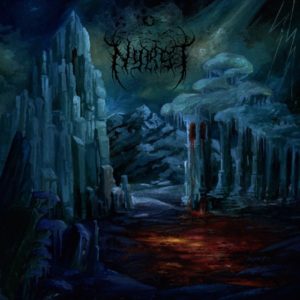 More black metal, this time from Iceland. Pretty standard (in a good way), polished but not symphonic black metal, modern but very much influenced by the classic Scandinavian bands (maybe more the second-and-a-half wave, like Kampfar than the classic Mayhem-Darkthrone-Burzum axis) it’s all very well put together and has plenty of muscle and melody. Two things save it from just being yet more (and there is a lot of it) proficient ‘grim & frostbitten’ black metal – firstly, some strange and very Icelandic anthemic moments; I say very Icelandic only because those moments remind me a bit of some of the epic, windswept bits in Solstafir’s music. Although recommended by the label for fans of fellow Icelanders Misþyrming, Nyrst, though inhabiting more or less the same kind of sub-genre, definitely have their own sound and style. (I highly recommend Misþyrming’s
More black metal, this time from Iceland. Pretty standard (in a good way), polished but not symphonic black metal, modern but very much influenced by the classic Scandinavian bands (maybe more the second-and-a-half wave, like Kampfar than the classic Mayhem-Darkthrone-Burzum axis) it’s all very well put together and has plenty of muscle and melody. Two things save it from just being yet more (and there is a lot of it) proficient ‘grim & frostbitten’ black metal – firstly, some strange and very Icelandic anthemic moments; I say very Icelandic only because those moments remind me a bit of some of the epic, windswept bits in Solstafir’s music. Although recommended by the label for fans of fellow Icelanders Misþyrming, Nyrst, though inhabiting more or less the same kind of sub-genre, definitely have their own sound and style. (I highly recommend Misþyrming’s  And another one-woman folk project. Ols (Polish singer and multi-instrumentalist Anna Maria Oskierko) is very different from Kariti though, and Widma is a primitive, ritualistic sounding album with none of Covered Mirrors‘s accessible, almost pop sheen. Widma does sound traditional, but it’s more akin to Wardruna and the archaeological end of pagan folk music than the glossy Clannad-ish kind recently heard on the latest Myrkur album. This is, by contrast, pleasantly droning and primal (and in that respect reminds me of an album I bought via MySpace many years ago by
And another one-woman folk project. Ols (Polish singer and multi-instrumentalist Anna Maria Oskierko) is very different from Kariti though, and Widma is a primitive, ritualistic sounding album with none of Covered Mirrors‘s accessible, almost pop sheen. Widma does sound traditional, but it’s more akin to Wardruna and the archaeological end of pagan folk music than the glossy Clannad-ish kind recently heard on the latest Myrkur album. This is, by contrast, pleasantly droning and primal (and in that respect reminds me of an album I bought via MySpace many years ago by 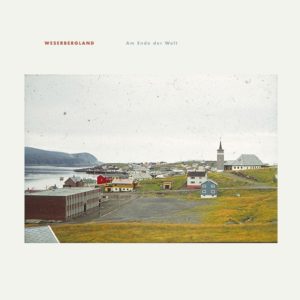 A contrast to everything else here, Norwegian collective Weserbergland’s second album consists of one 42 minute track, but it’s not the krautrock–influenced prog of their Can/Tangerine Dream-flavoured debut. Instead, it’s a chaotic but weirdly coherent kind of collage which consists of performances on conventional-ish instruments: guitar/strings/sax/turntables, cut up, messed about with and reassembled into a kind of melancholy, cinematic symphony. The strange, unpredictable stuttering percussion seems like it should disrupt the flow of the piece, but somehow the jerkiness becomes part of the mood and it all flows perfectly, if not in a straight line. It’s really not like anything else I’ve heard, but reminds me a little of Masahiko Satoh and the Soundbreakers’ 1971 classic avant-garde jazz-prog-whatever album Amalgamation in its sheer ear-defeating unclassifiable-ness. I’m sure it won’t go down in history as such, but this may be a definitively 2020 release.
A contrast to everything else here, Norwegian collective Weserbergland’s second album consists of one 42 minute track, but it’s not the krautrock–influenced prog of their Can/Tangerine Dream-flavoured debut. Instead, it’s a chaotic but weirdly coherent kind of collage which consists of performances on conventional-ish instruments: guitar/strings/sax/turntables, cut up, messed about with and reassembled into a kind of melancholy, cinematic symphony. The strange, unpredictable stuttering percussion seems like it should disrupt the flow of the piece, but somehow the jerkiness becomes part of the mood and it all flows perfectly, if not in a straight line. It’s really not like anything else I’ve heard, but reminds me a little of Masahiko Satoh and the Soundbreakers’ 1971 classic avant-garde jazz-prog-whatever album Amalgamation in its sheer ear-defeating unclassifiable-ness. I’m sure it won’t go down in history as such, but this may be a definitively 2020 release.